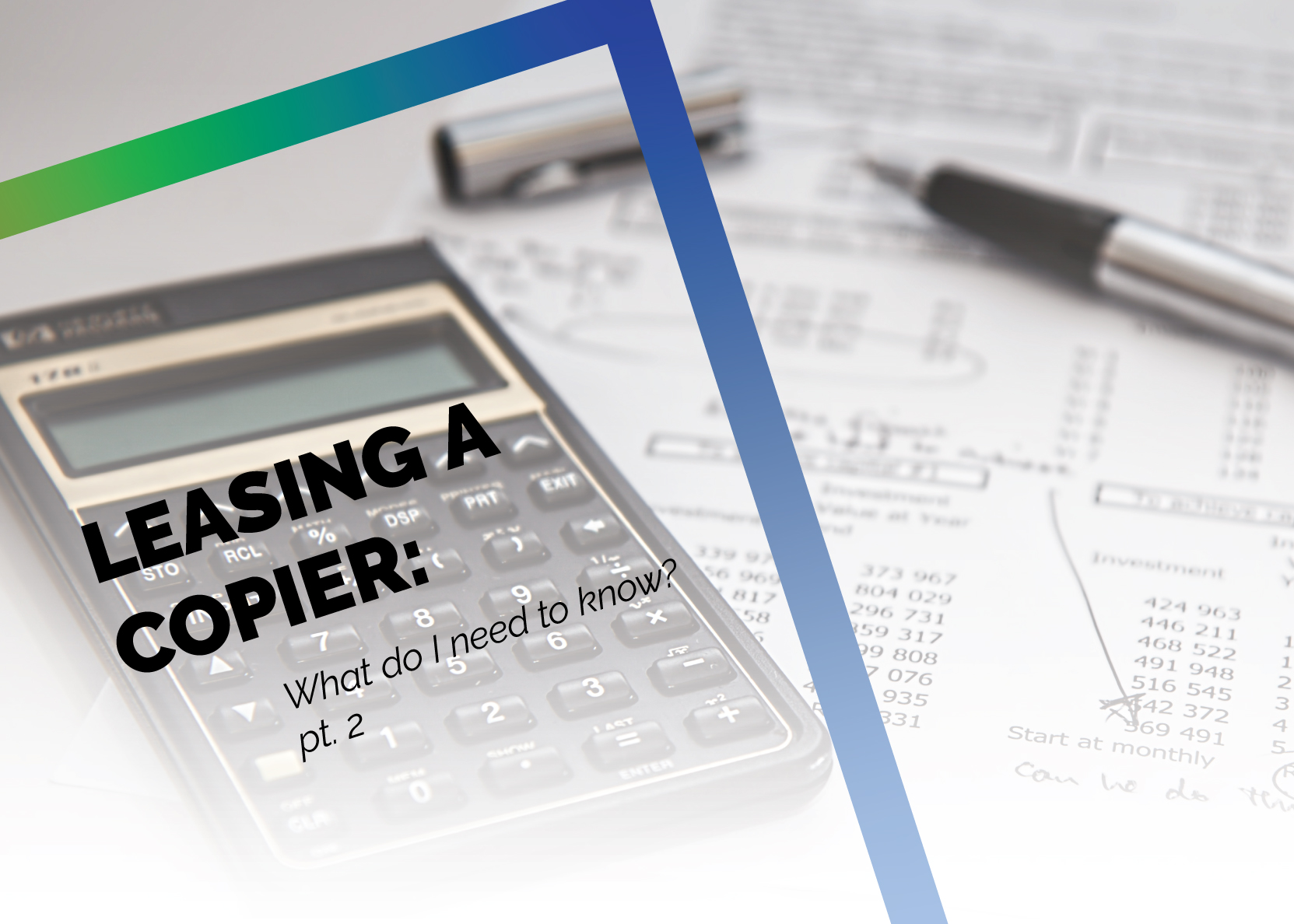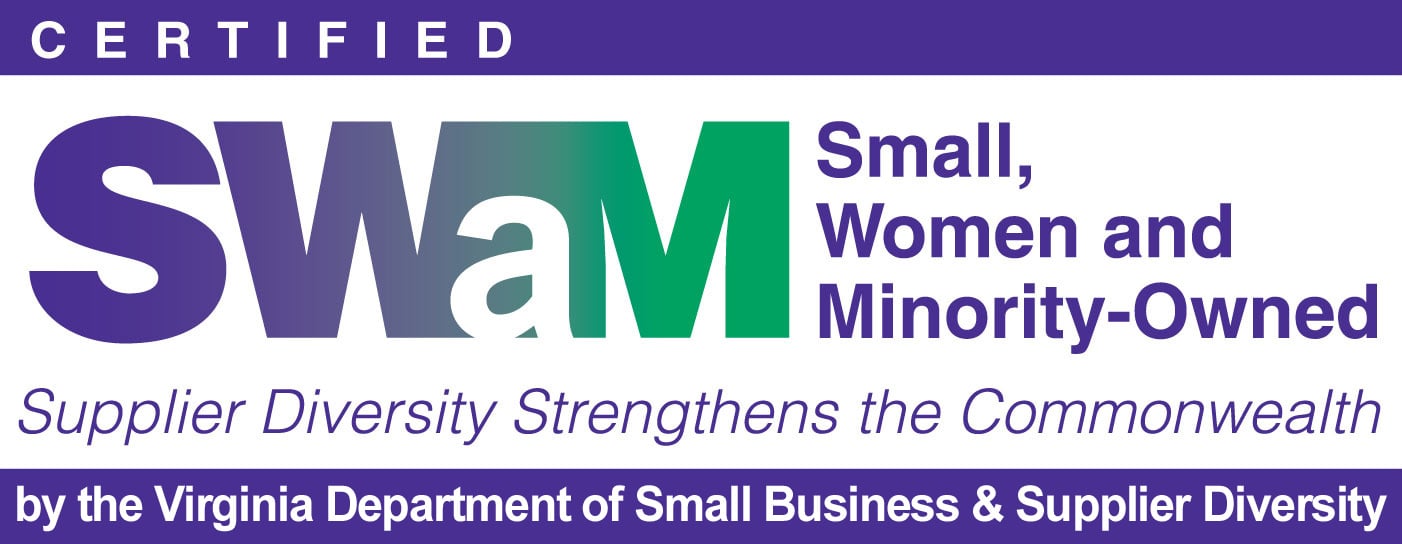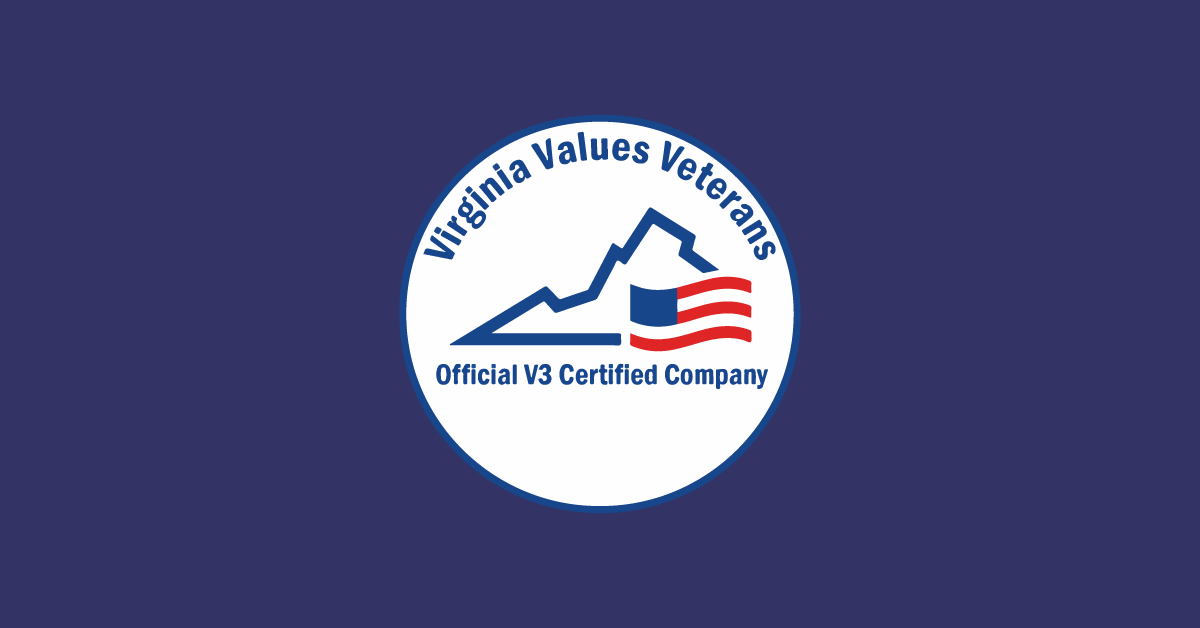3 min read
Building Culture That Works: Cobb Tech Named One of VA's Best
Cobb Technologies has been honored as one of the 2025 Best Places to Work in Virginia by Virginia Business and Best Companies Group. This prestigious...
3 min read
.jpg) Eddy Jones
Sep 10, 2020 12:54:32 PM
Eddy Jones
Sep 10, 2020 12:54:32 PM

*Note: This is the second installment in our blog series about leasing a copier. If you haven’t already done so, read Part 1 first.
There is an adage that has shown up a few times on our blog; measure twice, cut once. And when it comes to leases, this advice most definitely applies. You always want to be careful and certain about every detail before signing a lease for your business’ copier. After all, 60 months can be a long time to pay because of simple miscommunication.
Below, you will find the hidden costs associated with leasing a copier, as well as how to avoid penalties at the end of your leases term — and your end of lease options.
Insurance. Something we all dislike paying for, but something that is absolutely necessary. It may not come up in conversation when discussing your leasing terms with your dealer, but the insurance costs of your copier are included on your lease. This cost can be removed, however, if you provide the leasing company with evidence of your commercial insurance.
We always recommend our customers do that — the leasing company will charge you for insurance no matter what — by providing your own insurance, you have less to worry about on your copier’s lease.
Another inevitable fact of life is that taxes are inescapable. On your lease, you will be charged for personal property tax — unfortunately, it is something you can’t avoid. Why is this? Simply put, the leasing company is assessed and charged due to their ownership of the equipment, and as such, they pass that cost onto you. The terms of rates and frequency of payments of your personal property tax will be determined by your locality.
If you are having trouble determining your personal property taxes rates and frequency, speak with your dealer; sometimes this cost can be negotiated to be included in the cost of your lease payment.
If you thought we were done with taxes, think again. Sales tax is included in the price of your copier’s lease. If your organization is a non-profit 501-c3, you can submit your sales tax exemption form to either your vendor or your leasing company. This will prevent you from being assessed the sales tax.
Finally, every lease will have a ship-back cost. At the end of the lease, when the equipment is returned to the leasing company, the shipping costs will be passed on to your business. If you prefer, you can ask your dealer to roll the ship-back cost into your new lease, avoiding having to pay this charge up-front.
Businesses change all the time. Hopefully, your business is growing. This growth, however, can make it difficult to form predictions about your business’ future office technology needs. This is where a good dealer can help — a good copier dealer will maintain a positive relationship with you, and want to communicate with you. Like any relationship, be it personal or business, communication is key. We recommend you set clear expectations about communication with your dealer before agreeing to a lease.
A good dealer should provide their customers with annual account reviews. This achieves two important things: it gives you the opportunity to learn about new technology solutions, and it helps your dealer understand what changes your business is going through. With this information, you dealer can better inform you about the best options available to you during your lease.
This communication is key to making a smart decision at the right time. Typically, dealers advise their customers to begin considering buyout options 24 months out from the end of a lease. At the very latest, a new lease agreement should be sought 90 days out from the end of the lease’s term. This is because leasing companies require notification of your lease termination before your end of term date.
If you don’t terminate your lease before your end of term, it can roll-over into a new lease. This new lease can be as short as a month, and as long as a year. This is why you always want to let your leasing company know what your intentions are as you come to the end of you lease.
Your leasing company can also penalize your business for terminate your lease early. This is why it is very important to thoroughly read your contract, and that your dealer read your contract as well. Your dealer should be able to identify the particular window of time that must be adhered to for the buyout or return of your copier without penalty.
The key to avoiding hidden costs associated with leasing a copier is to communicate with your dealer. No one likes surprises at the end of a lease — and the earlier your business begins considering your buyout options, the less likely you are to run into a surprise.
As the end of your lease approaches, you have three options to consider: upgrade, purchase, or return. Upgrading is a simple way to continue your relationship with your dealer, and enjoy the benefits of the latest and greatest in office technology.
Unfortunately, sometimes business ventures don’t go as planned. For situations such as this, your business can always simply return the copier to the leasing company at the end of your lease term. As soon as it has been returned to the leasing company, it is no longer your worry.
Your third option is to purchase the copier. Purchasing is a good option if your business’ copier has seen light usage, and the device is still in good shape. While owning a copier can be a good option, it can also lead to high service charges down the road as the equipment ages. For more about the financial pros and cons of purchasing a copier, read our blog about owning and servicing your copier.
We hope this series about leasing has eased your fears. If you have any more questions about leasing a copier, check out our blog, or contact us.

3 min read
Cobb Technologies has been honored as one of the 2025 Best Places to Work in Virginia by Virginia Business and Best Companies Group. This prestigious...

5 min read
Cobb Technologies is honored to hold the SWaM (Small, Women-owned, and Minority-owned Business) certification, awarded by the Commonwealth of...

5 min read
Every year, thousands of Veterans transition from military service to civilian careers in Virginia, bringing invaluable skills and experiences to...